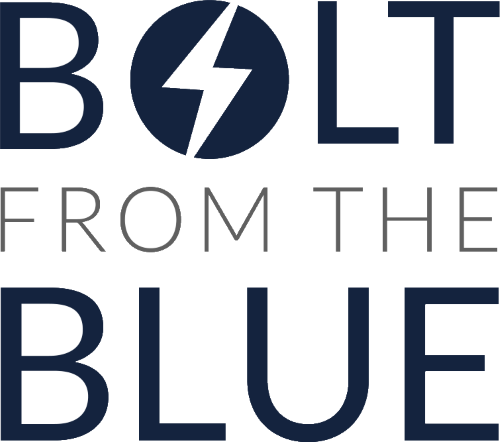One of the coolest things about writing copy and content is that we get to work with some seriously interesting people.
Right now, we’ve got someone who styles fashion shows, someone who runs arctic expeditions, a naturopath out to change the way we do health, and an ethical executive incubator on our books (and that’s just to name a few).
For every one of those though, we also have someone in a so-called “boring” industry. Accounting. Org dev. Law. Microbiology.
These are the people who almost everyone tunes out the second after they tell you what they do at parties. And most of the time, the web copy, blogs, and emails for people in these industries are written to match, because what the hell, it’s a boring topic, right?
Wrong.
There are no boring topics — just boring writers.
Seriously. You can make any topic interesting if you take the time to figure out how. For example, I read a book the other week that was written from the perspective of a bee (of all things) and it was literally-could-not-put-it-down riveting.
But … but … but … accounting? Legislation? Statistical analyses of bacterial activity? C’mon, that stuff is seriously boring.
OK, maybe you’re right. Maybe it is boring for you. But that doesn’t mean that you have to slather more boring on top of it with bad writing. The key to writing about boring topics in a way that doesn’t make you want to poke yourself in the eye with a fork is to find the person and tell the story.
Find the person (ideally, the freak).
There’s always at least one person involved in any topic, even if that’s just you or the reader. But most of the time there will be an interesting person attached to a boring topic.
Look for the freak, the Tube map collector, the yoyo world champion, the person who reads the broadband industry white papers because they actually understand them. Me, when it comes to punctuation (here’s looking at you, octothorpe!) The person who is so ridiculously enthusiastic about this topic, even though nobody else really cares.
If you can talk to them, really get to understand the reason for their enthusiasm and translate that across to your readers, you’ve made it.
Tell the story
OK, but what if you can’t find an interesting person to build your writing around? Then you need to tell the story of how that topic affects people. Sure, tax law is boring, but the small business owner who used the tax law to save money just when their business was about to go under isn’t.
Likewise, management training sounds like a snooze, but the (in this case, true) story of how one of my clients got a team of alpha-male explorers at BP to play nice isn’t.
Just one thing: don’t make it contrived. If a story’s not interesting, don’t try to force it. You’ll read like a local British newspaper:

An alternative here is to tell the story of the reader. Tell them how this topic affects them, what it really means.
This means that if you’re trying to write copy for your flower business, you shouldn’t just talk about flowers. Talk about the flowers that they give to their future wife on their third date. If you’re trying to sell personal styling, don’t talk about how they’ll dress better. Talk about the promotion they’ll get after they increase their confidence at work because they’re dressing better.
Kill the cliches
This is good advice in general, but especially when writing about boring topics because they make such easy fall backs. Every accountant tells you that they want to save you time, every HR business talks about helping you reach your full potential, every charity is all about helping you really make a difference, and every paint company bangs on the trope of freshening up your life by freshening up your walls.
Challenge yourself to write about a topic in a way that it’s never been written about before. One of the best examples I’ve ever seen of this is the V&A’s old advertising campaign. Instead of going on and on about culture and history and blah blah blah like every other museum in the world, they went with:

It’s funny and unexpected, and it shows that they have a sense of humor about themselves (unlike most museums, which are kind of stuffy), and because of that you remember it. So see if you can write about your topic in a totally unexpected way — a great exercise for doing this is to write about your topic as you normally do, then read it and delete everything you’ve heard before, and revise from there.
So no more excuses, my beloved so-called “boring” people — get out there and start talking about your work in a way that gets other people excited! Excitement → relationship → sales → the chance to do what you love best, for people who now understand how to be just as jazzed about it as you are. And what could be better than that?
